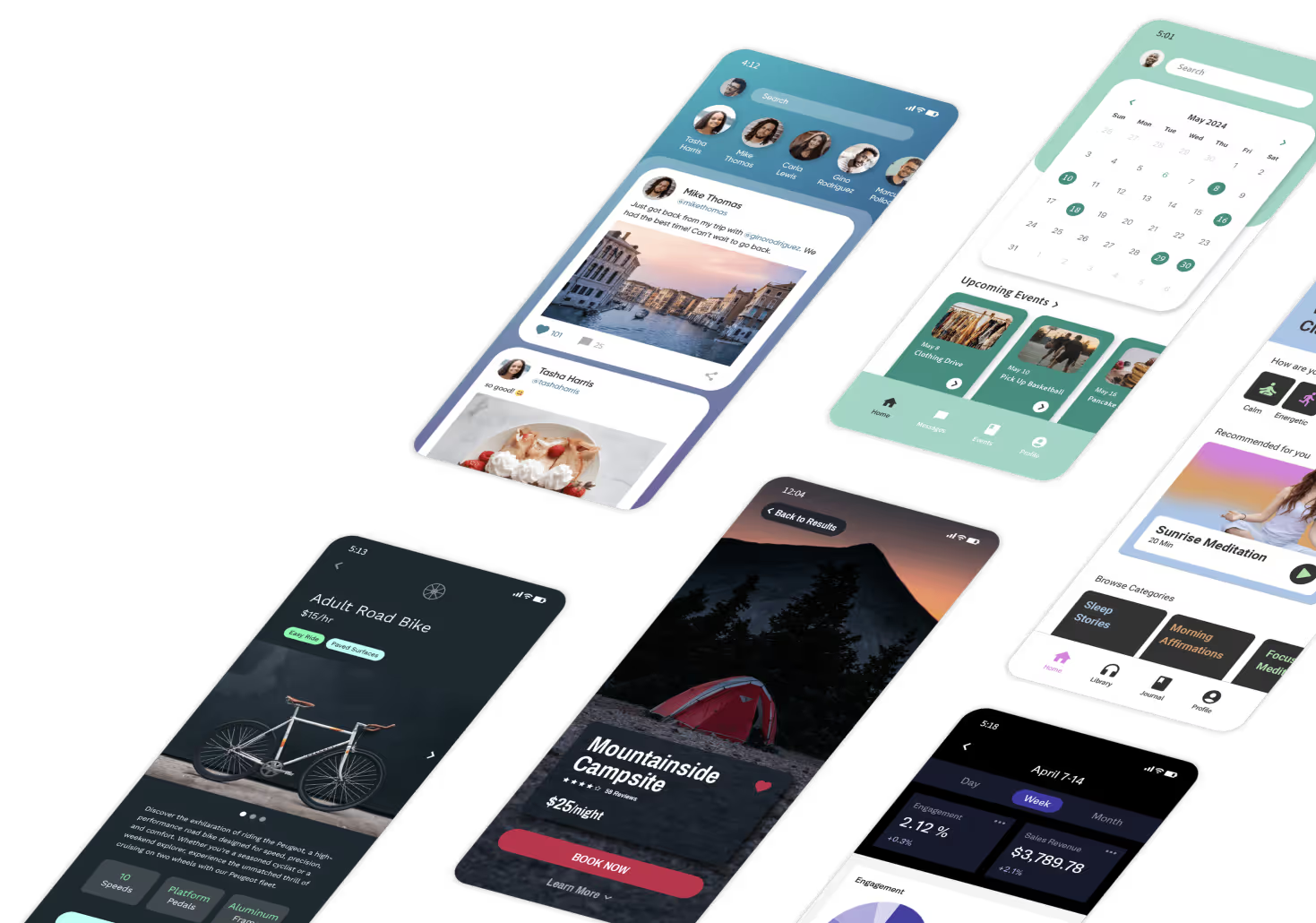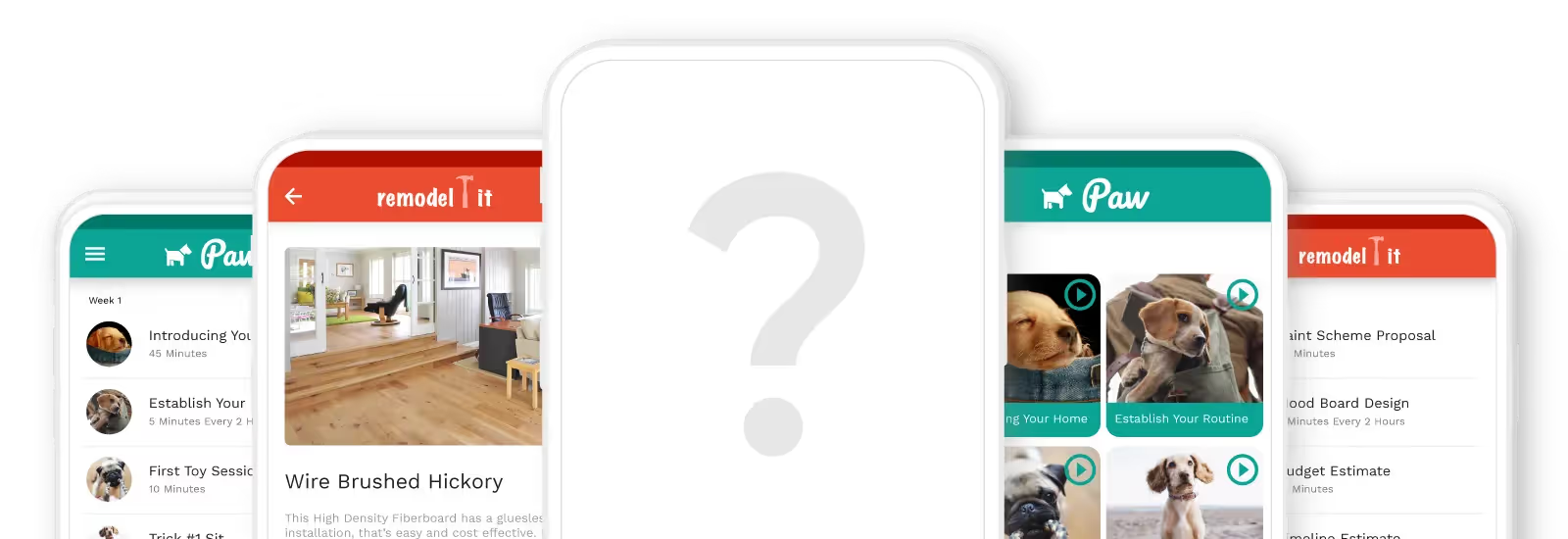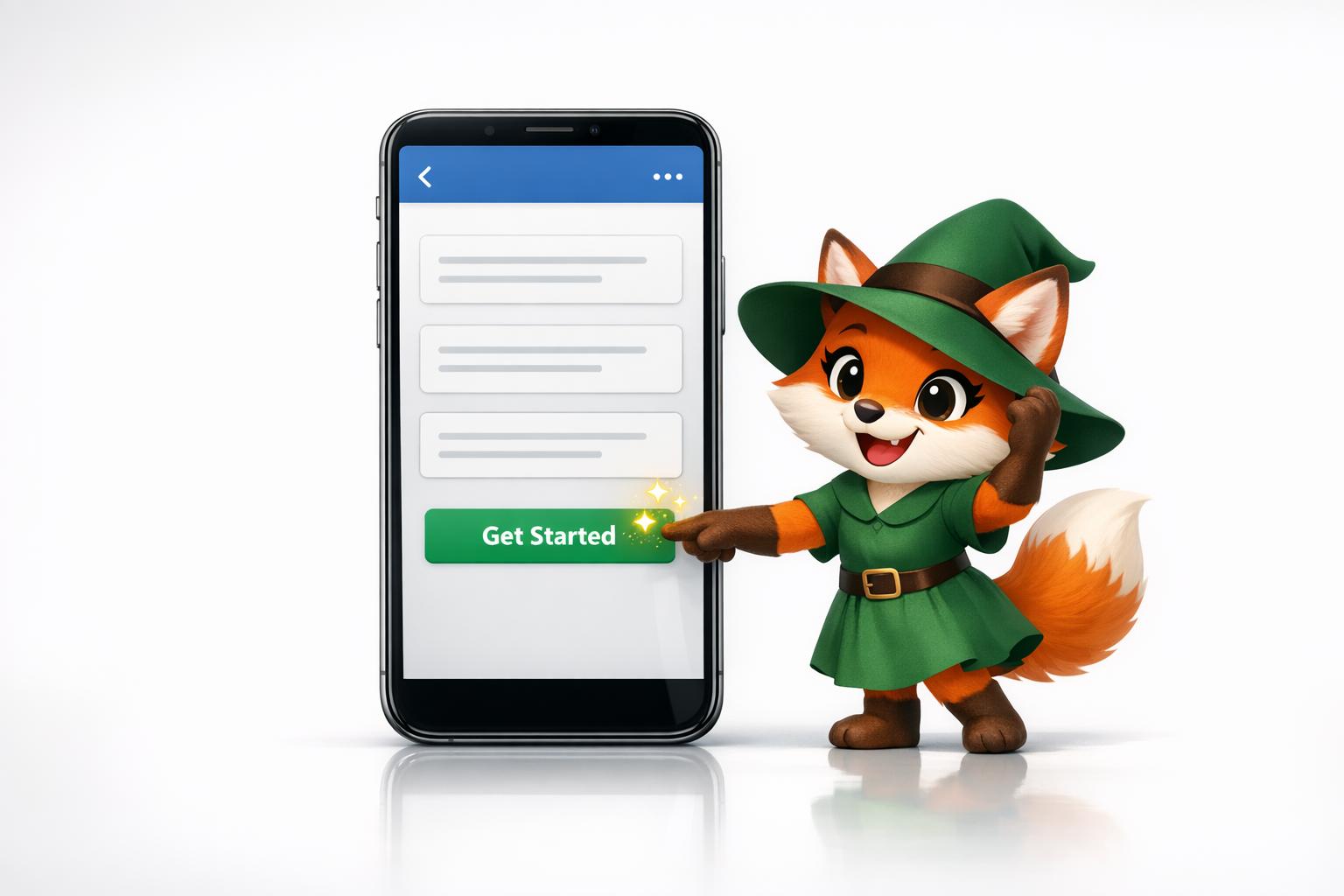Running a mobile app development agency means juggling client projects, tight deadlines, and the constant pressure to deliver quality apps without ballooning costs. The right no-code tech stack can streamline your entire workflow—from project management to app deployment.
At the core of any agency stack is a reliable app builder. Adalo is a no-code app builder for database-driven web apps and native iOS and Android apps—one version across all three platforms, published to the Apple App Store and Google Play. This means you can deliver client apps faster, reach massive audiences through app store distribution, and leverage push notifications to boost engagement—all without writing code.
Below, you'll discover how to map out your goals, identify gaps, and assemble the ultimate no-code tech stack that gets your clients' MVPs launched quickly and positioned for success.

Here are some benefits to using no-code tools instead of building a tech stack from scratch!
There are plenty of no-code tools!
Meaning, there’s a wide range of platforms and tools that you can incorporate into your stack, increasing the odds that you'll find one that’s just the right fit for your agency.
No-code tools are flexible!
You can customize them to better meet your needs, and you can slowly upgrade them when your business grows or if you end up with different requirements.
No-code tools are cheaper than building from scratch!
Unlike building custom software, you’ll always save money using no-code tools. They typically work on subscription fees that more than make up for the cost of developing and hosting software on your own. Plus there are no maintenance concerns, since these tools will have a team of software experts that take care of it for you.
No-code tools are easy to learn!
That’s always a big plus point when you’re short on headspace or time. You may not be keen on a rool with a steep learning curve. No-code tools are generally easy to pick-up, extremely intuitive, and uncomplicated to incorporate into your business.

Next, here’s how you map out your tech stack needs!
Step 1: Map out your goals!
When you start out building a no-code tech stack, it helps to start with a clear objective in mind. What you want your tech stack to do for you, or for your business? Here are some questions to help you think through it:
- Are you trying to automate a certain workflow or process?
- Is there something you’d like to improve in your operations?
- Do you want to improve your outreach?
- Are you looking for ways to better your marketing efforts?
- Do you want a CRM?
- Is there some backend system that you’d like to improve? (inventory management, sales, dashboards)
Once you have your objective in mind, the idea is to "stack" these tools together so they help you achieve your goal.
Step 2: Figure out the gaps
List your challenges
What is your team currently spending too much time on, or struggling with? It could be that they’re constantly overbooked on projects or that stuff falls through the cracks when you’re assigning tasks which leads to constant follow-ups or missed deadlines.
Connect challenges to workflows
How do these challenges impact agency workflow tools? If your project managers is assigning work that your team can’t fit into their schedule, then it may be helpful for them to have a bird’s eye view of what everyone is working on. If your client is constantly following up for updates, having a board to track progress could be a handy option.
What makes your team unique
Is there a process or workflow that’s unique to your team? Do they work across timezones? Is there a specific process around time tracking that you need? Are there any other factors to consider when resource planning?

Step 3: Pick tools for your tech stack

Plan your workflow and manage projects
Notion
Mashable called Notion “the underrated productivity app that may change your work-life”.
You can use it to make notes, plan, and organize your work – all in one place. Think of it as docs, sheets, and a calendar combined. Notion lets you manage daily tasks and workflows across your team.
While it seems like a notes app at first, you will soon discover many other features that make this an advanced tool. You can add database tables to your notes, organize tasks in kanban boards, create timelines, and connect work from apps like Figma and Google Docs.
Notion has great free features, and serves as a a blank canvas for your agency. You can create pages from scratch or use the many templates to keep information organized and clean.
Trello
Trello is a project management tool that basically serves as a huge bulletin board. As a mobile app development agency, you can compile your lists, tasks, and notes you need and organize them into different boards.
The great thing about Trello is that you can search, filter, share and set up reminders in addition to creating lists. All your work is organized into into boards, followed by lists, and then cards. These cards can contain images, attachments, checklists, deadlines, and much more. They can also be rearranged quite simple – you just drag and drop them wherever you need it.
The best part is that Trello’s basic version is free! As an agency, you can use Trello to help you organize anything, whether it’s projects, client work, deadlines, or personal goals.
ClickUp
ClickUp is a project management platform and workflow management tool for agencies that’s user-friendly, straightforward, customizable, and affordable — making it ideal for agencies ready to grow from a couple of clients to many. It’s especially popular among remote teams because of how neatly work can be organized, assigned, and tracked.
Mobile app development agencies can use it to manage deadlines and organize their tasks, plus there are time tracking features that can help keep tabs on work and effort. It’s primarily a tool for time management, admin tasks, and coordinating between teams and clients.
One useful feature to keep your processes consistent is the ability to create task templates that auto-populate with the next steps you, or your team, need to take to complete a project. For example, once you move a task into ‘in progress’, it can show a checklist that someone needs to follow and complete before it’s complete.
The goal is to save time for your app development agency by making all aspects of project management easier and simpler.
Airtable
For a small mobile app development agency, Airtable allows you to create projects and workspaces to collaborate with your team. It has additional features that go beyond a spreadsheet, which is what makes it a database tool.
Airtable has built-in forms to add data, so it can double-up as a way to collect client information early on in your engagements. It’s a highly sophisticated tool that helps you manage your projects and visualize data beautifully. It’s also got great collaboration features – you can assign tasks to team members, set to-do’s and due dates, and easily understand if your client projects are under control.
For example, you can use Airtable to visualize your freelance work neatly in columns of stacked cards. You can see what stage projects are in and stay on top of things with minimal effort. Airtable also connects with Zapier, so you can build automation sequences to speed up and eliminate manual, repetitive tasks.
Mobile app development agencies can build systems that stores contracts and projects in an organized way, and minimize the grunt work. You can benefit from their templates or build your own custom databases and work setup to fit your agency's needs. Their website has a freelance project tracker that you can use to get started!

Manage and schedule social media posts
Social media may not feel like an immediate priority for your agency, but it’s one of the most effective way to establish yourself as a thought leader in your space, and build credibility. It also helps your business stay top-of-mind for potential clients or customers.
But of course, social media can’t take up too much time or it’ll become something you dread rather than enjoy. Social media management and scheduling tools allow you to create content in bulk and schedule them on different platforms at the same time. You can also assess what’s performing well, what your growth and engagement rates are like, and what type of content you should focus on.
Buffer
Buffer is a great social media scheduling tool that is affordable for solo developers or freelance agencies. It has a free plan that can probably fit most of your needs right from the start.
Hootsuite
Streamline content across all your channels with one of the oldest and most popular scheduling tools! It also lets you analyze trends and get performance insights.
HelloWoofy
This is a new social media management tool that’s aimed at small businesses. It helps you schedule your posts easily and integrate all your accounts. You can also schedule different types of media, from audio to video.
Later
Later has a great free plan that covers most business or freelancer needs. You can easily drag-and-drop posts for easy scheduling. Its analytics feature lets you measure your reach, while making smart recommendations for content ideas, hashtags, and accounts to follow. You can significantly streamline the content creation, content curation, and data analysis processes.

Automate your manual tasks
Zapier
Meet one of the gold standards of no-code automation!
Zapier is extremely userful for freelancers with its many different use cases. It’s an automation tool that connects the apps that your agency uses so you can automate the manual or repetitive parts of your workflow (with no coding needed!)
For example, you can set up zaps to send automated emails when a new spreadsheet row is added, or is a particular task is completed. You can also create client onboarding questionnaires or scope of work documents using form tools (like Airtable or Goodle Forms) and then zap that data over to your project management software and get notified on Slack.
If you set it up right, Zapier is an amazing tool for your mobile app development agency to free up hours of your day so your team can focus on bigger challenges.
Make
Make, like Zapier, is an automation tool that can help you streamline workflows and automate tasks. It has a visual editor that makes it easy to drag and drop the apps you want to connect, and you can watch the automation play-out in real-time.
Make, however, does have a much steeper learning curve than Zapier, so if you have experience with automation it’ll be easier for you to work with. If you’re an automation novice, you’ll need to spend some time getting familiar with Make. There are some great tutorials on how to use Make for your agency.

Use email marketing tools to stay connected and send newsletters
While email marketing is a more traditional marketing approach, it’s still extremely relevant for agencies and freelancers that want to stay connected with their funnel. It can help build a meaningful relationship with your subscribers and provide relevant information to help them accomplish their goals.
Whether it’s through weekly newsletters or sending oout information about your new services and products, email marketing tools are great ways to help make all of this easy, intelligent, and efficient.
MailerLite
Here’s a great tool for small businesses and freelancers that want an affordable and powerful tool that makes email marketing easier. If you don’t need anything very complex or advanced, but want an intuitive tool that works with you – MailerLite is a great option!
ConvertKit
ConvertKit is a commonly used platform that’s great for a solo freelancer or a small business. The key function is to help nurture your audience and monitor analytics and engagement. You can also use ConvertKit to create landing pages for your services and products.
Mailchimp
Mailchimp has been around since 2001, which makes it a credible option if you’re on the fence about email marketing. With handy templates that are easy to use and customize, it makes sending out newsletters and emails a breeze. People love Mailchimp because of the tutorials, guides, and resources available.

Build a website or landing page for your agency
Wix
Wix is a great website builder because it’s simple enough for beginners to build a landing page, form, and a customized website. The templates are well-designed, and it’s also easy to turn a website into an eCommerce platform if your agency has products to sell.
Squarespace
Squarespace offers over a hundred beautifully-designed templates, organized by categories based on your agency’s industry. It has a drag-and-drop editor that makes it easy to work on, and doesn’t need any advanced or special skills to use.
Webflow
The holy grail of websites and landing page builders! Webflow has highly customizable no-code templates and is perfect for agencies to build a website without much effort. It may not be as user-friendly for beginners as Wix or Squarespace, but the large number of templates make it an excellent option.
Webflow places a high value on design, which is why it’s ideal for businesses that want to convey a professional, polished image through their website. Webflow also offers advanced SEO features that may help your mobile app development agency stand out amongst its competitors.
Carrd
If you want to create a simple landing page or one-page website with no coding required, Carrd is the solution for you. It has a good range of templates, but it’s also available at a great price. The user interface is clean and friendly, but it doesn’t provide you much creative freedom.

Pick your no-code tech stack!
These no-code tools are all great platforms that can help you address needs in your business or gaps in your workflow. Remember that no tool will be able to transform your app development agency overnight, but if used smartly, then can help overtime. Make sure you carefully review these tools and see how they fit your requirements.
Try not to overload your tech stack – it's better to keep things simple. All of these tools work well when used optimally, and you may not need as many as you think! So whether your mobile app development agency builds apps from scratch or through no-code tools, you can benefit from a smart no-code tech stack!
FAQ
| Question | Answer |
|---|---|
| Can I easily build a no-code tech stack for my agency? | Yes, with Adalo's No Code App Builder, you can easily build a comprehensive tech stack for your agency. Adalo integrates seamlessly with other no-code tools like Zapier, Airtable, and more, allowing you to create powerful workflows and custom mobile apps without writing any code. |
| Why choose Adalo over other App Builder solutions? | Adalo is a no-code app builder for database-driven web apps and native iOS and Android apps—one version across all three platforms, published to the Apple App Store and Google Play. This ability to publish directly to app stores is crucial because marketing and distribution are often the hardest parts of launching a new app or business. With Adalo, you overcome this major hurdle by getting your app in front of millions of potential users immediately. |
| What are the main benefits of using no-code tools for my business? | No-code tools offer several key advantages including cost savings compared to custom development, flexibility to customize and scale as your business grows, and ease of learning with intuitive interfaces. They also eliminate maintenance concerns since the platform providers handle technical upkeep for you. |
| How do I determine which no-code tools I need for my tech stack? | Start by mapping out your business goals and identifying specific challenges your team faces, such as workflow bottlenecks or communication gaps. Then connect those challenges to potential solutions and consider what makes your team unique, including factors like timezone differences or specific tracking requirements. |
| What types of no-code tools should I include in my agency's tech stack? | A well-rounded no-code tech stack typically includes project management tools like Notion or Trello, automation platforms like Zapier or Make, social media schedulers like Buffer or Later, email marketing tools like Mailchimp, and website builders like Webflow or Squarespace. Choose tools that address your specific workflow gaps without overloading your stack. |
| Can no-code tools integrate with each other in my tech stack? | Yes, most no-code tools are designed to work together seamlessly. Automation platforms like Zapier can connect different apps in your stack, allowing you to create automated workflows such as sending notifications when tasks are completed or syncing data between your CRM and project management tools. |














